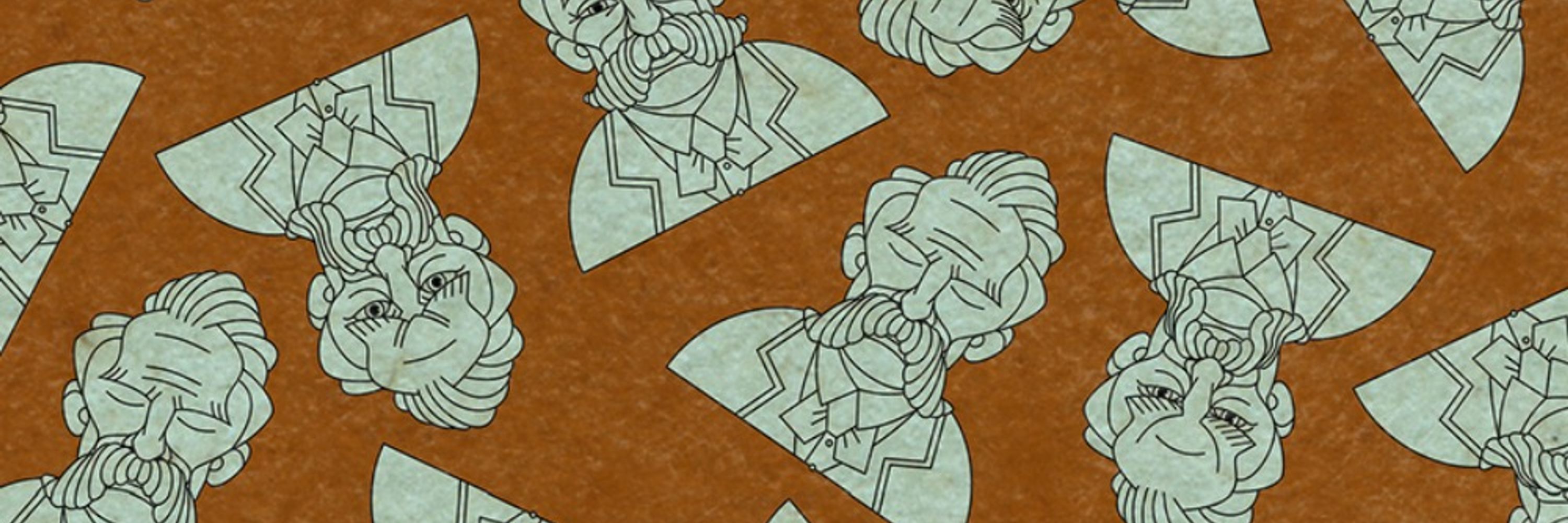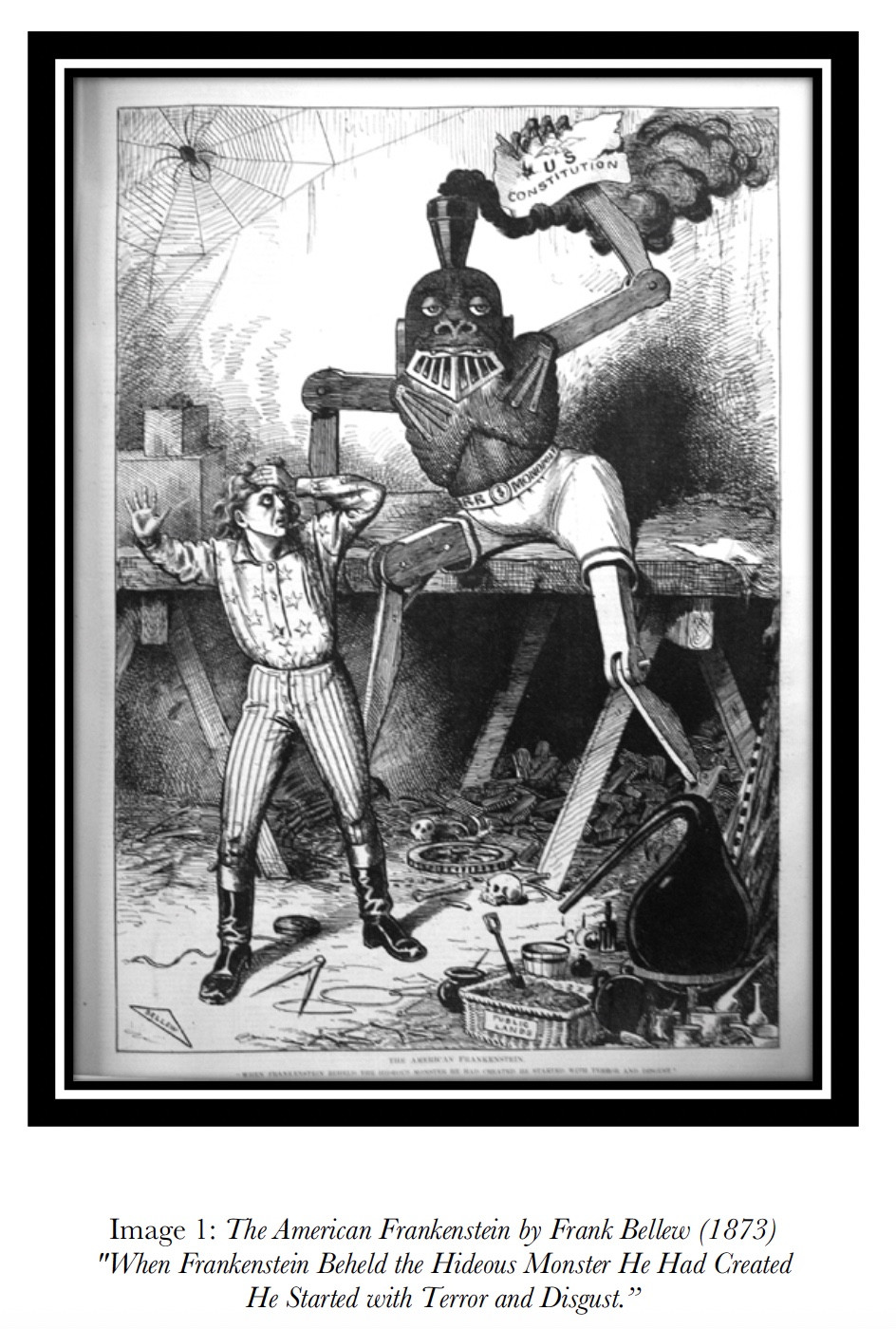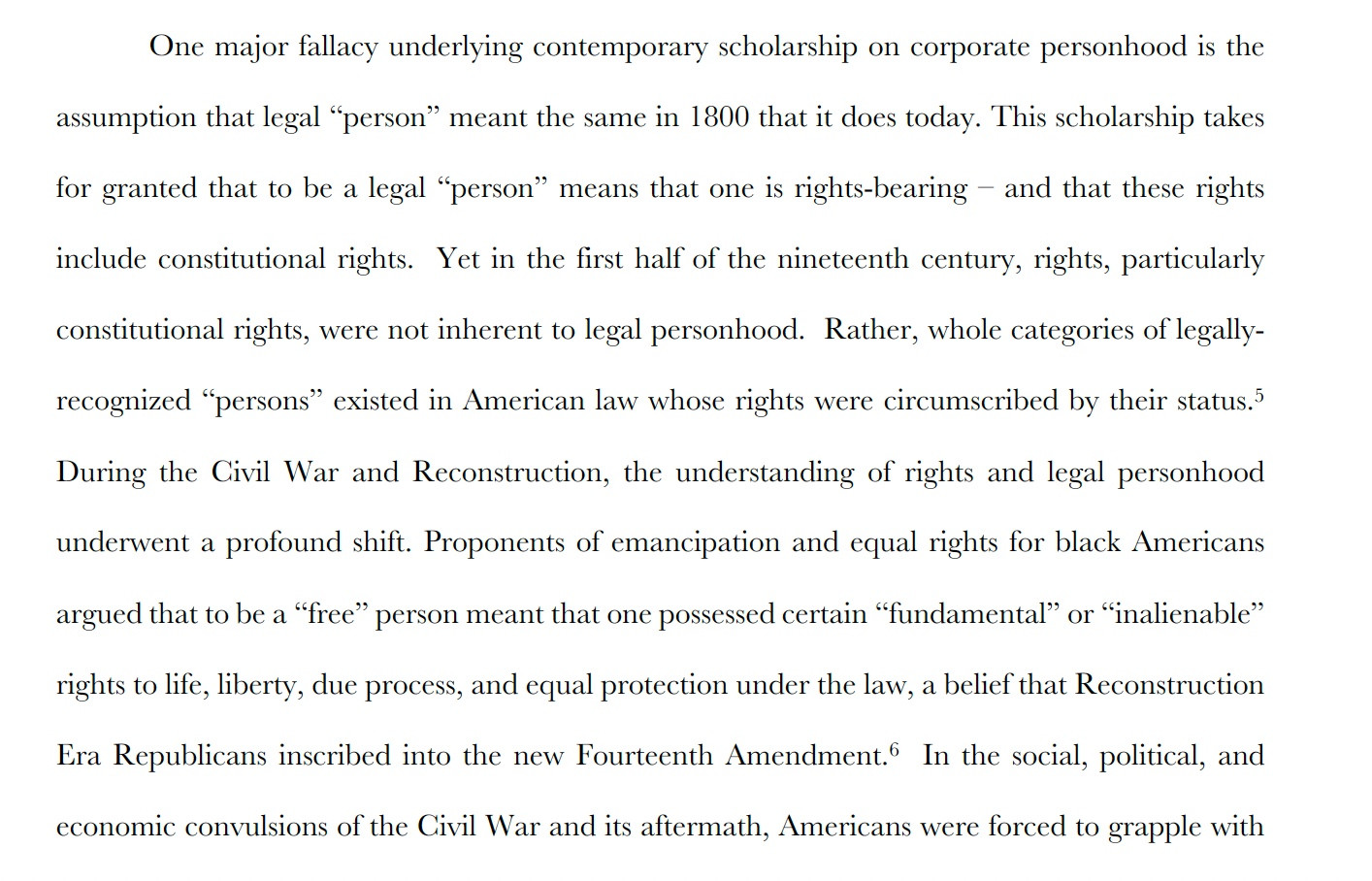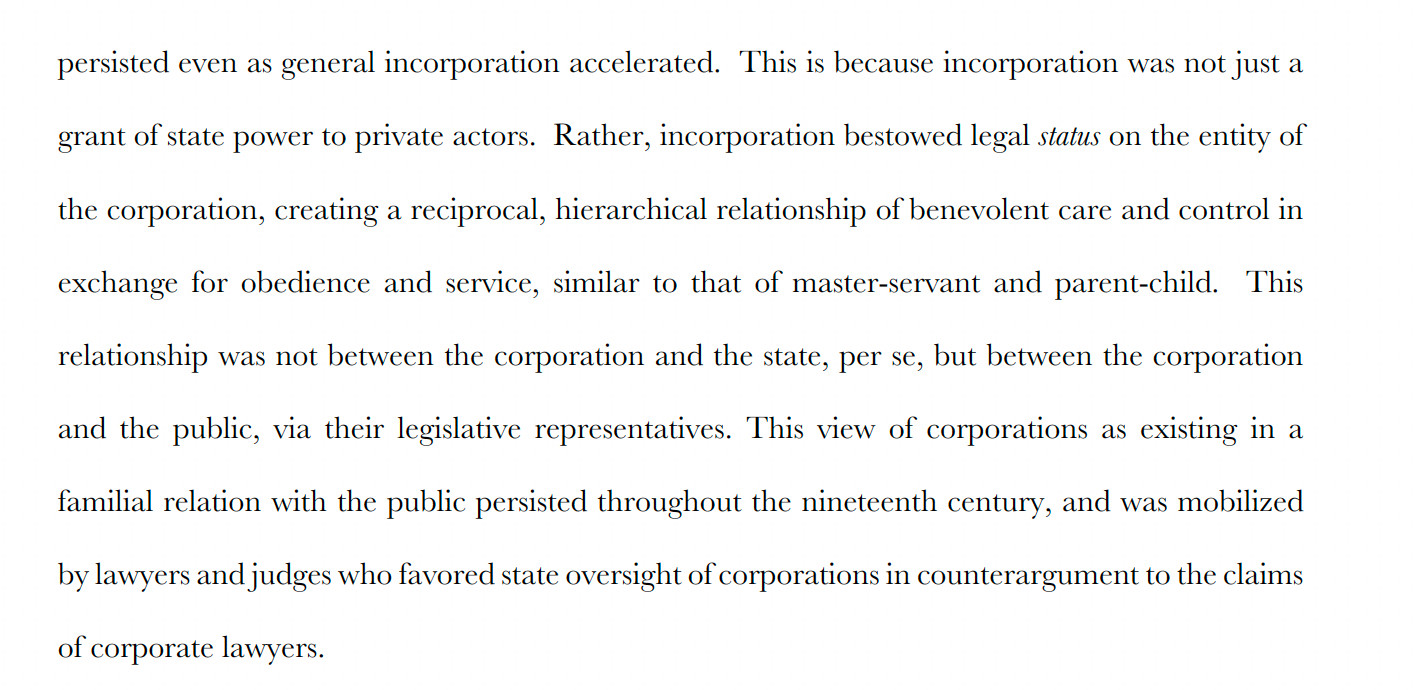
JH
John Holbo
@jholbo.bsky.social
Professor of Philosophy, Illustrator of Philosophers
1k followers535 following2k posts
Reading an interesting dissertation on the evolution of corporate personhood in US law. 'Corporations are people too.' We all have an intuitive sense that the legal fiction here can be problematic in its implications. knowledge.uchicago.edu/record/3479?...


I've just finished Foner's book on Reconstruction, so I'm attuned to how the post Civil War amendments went with conceptual revisionism re: rights and citizenship. But I hadn't really thought about how corporate personhood would, formerly, have fit more with the 'family' or 'household' model.


JH
John Holbo
@jholbo.bsky.social
Professor of Philosophy, Illustrator of Philosophers
1k followers535 following2k posts